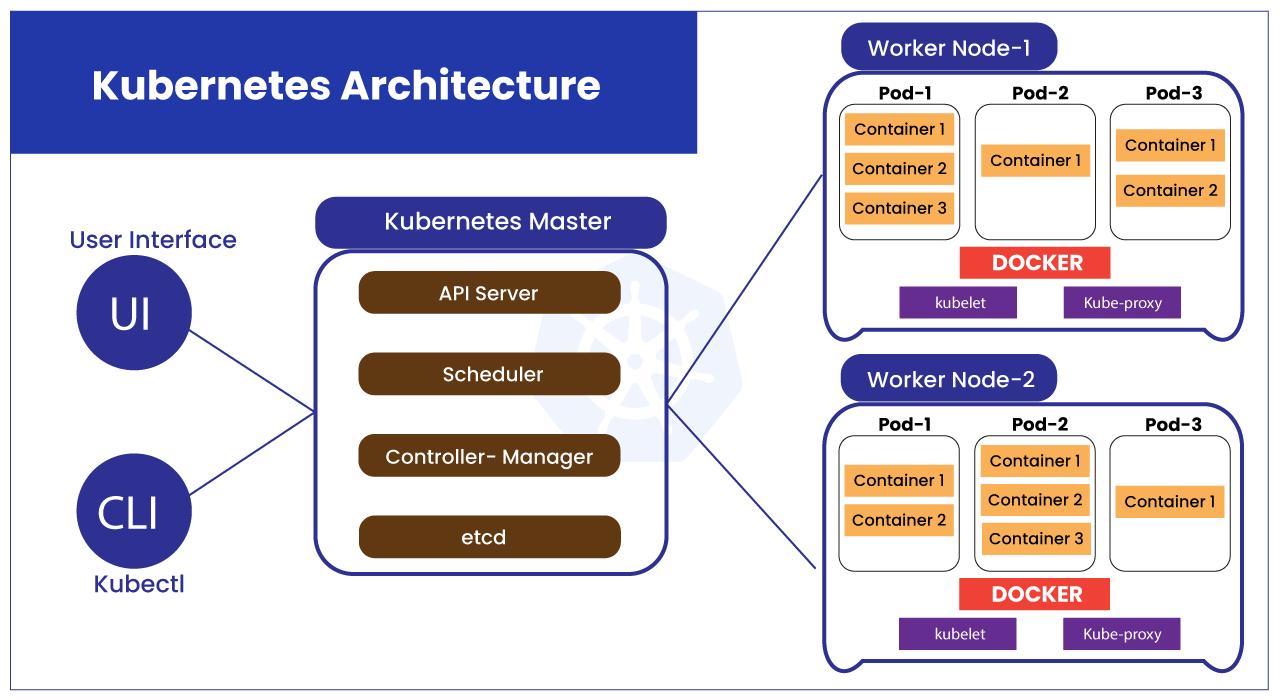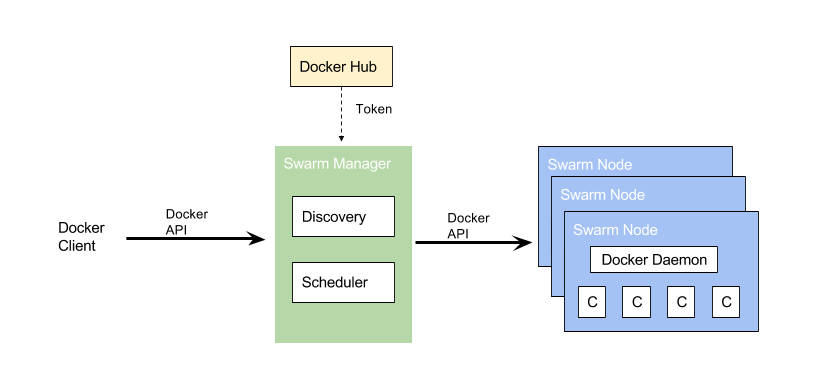

- #Docker and kubernetes architecture software#
- #Docker and kubernetes architecture code#
- #Docker and kubernetes architecture windows#
#Docker and kubernetes architecture software#
The key takeaway is that container orchestration has impacted every aspect of modern software development and deployment. Customers have the choice of either deploying core container orchestration tools that are more aligned with IT operations, or a PaaS implementation that targets developers.įigure 1: High-level architecture of a container orchestration engine. Most mainstream PaaS solutions have embraced containers, and there are new PaaS implementations that are built on top of container orchestration and management platforms. Some of the popular solutions include Docker Datacenter, Kubernetes, and Mesosphere DC/OS.Ĭontainer orchestration has influenced traditional Platform as a Service (PaaS) architecture by providing an open and efficient model for packaging, deployment, isolation, service discovery, scaling and rolling upgrades.

The complex architecture dealing with multiple hosts and containers running in production environments demands a new set of management tools. While core implementations center around the life cycle of individual containers, production applications typically deal with workloads that have dozens of containers running across multiple hosts.
#Docker and kubernetes architecture windows#
The industry is also witnessing various implementations of containers, such as LXD by Canonical, rkt by CoreOS, Windows Containers by Microsoft, CRI-O - being reviewed through the Kubernetes Incubator, and vSphere Integrated Containers by VMware. The interest in containers led to the formation of the Open Container Initiative (OCI) to define the standards of container runtime and image formats. They have become an integral part of build automation and continuous integration and continuous deployment (CI/CD) pipelines. Containers are also playing a crucial role in DevOps processes.
#Docker and kubernetes architecture code#
Developers and IT operations are turning to containers for packaging code and dependencies written in a variety of languages. Docker has demonstrated that containerization can drive the scalability and portability of applications.

Mainstream Unix-based operating systems (OS), such as Solaris, FreeBSD and Linux, had built-in support for containers, but it was Docker that truly democratized containers by making them manageable and accessible to both the development and IT operations teams. Though their popularity is a mostly recent trend, the concept of containers has existed for over a decade. It is built upon the foundation laid by Google based on 15 years of experience in running containerized applications. Its public cloud service providers are Google, Azure, and AWS.Kubernetes is an open source container management platform designed to run enterprise-class, cloud-enabled and web-scalable IT workloads. Its public cloud service provider is only Azure. It allows us to use in-built tools for logging and monitoring. It allows us to use third- party tools like ELK for logging and monitoring. It is an infrastructure for managing multiple containers. It is a container based technology used to create isolated environment for applications. The below table shows the difference between Docker and Kubernetes - Docker Kubernetes includes various features such as runs everywhere, automated rollouts and rollback, storage orchestration, Batch execution, secret and configuration management, horizontal scaling, and offers additional services. The advantage of using Kubernetes is that it provides the best solution for scaling up the containers. It offers powerful, useful, and scalable tools for managing, deploying complicated containerized applications. Kubernetes (also known as k8s) is an open- source platform developed by Google. For a system administrator, it provides flexibility to reduces the number of systems for testing the applications.ĭocker includes various features such as easy and faster configuration, manages security, use Swarm, routing mesh, application isolation, and increase productivity. For develops it focuses on writhing the code without worrying about the system. The advantage of using Docker is that it provides benefits for both developers as well as a system administrator. It allows us to easily build applications, package them with all required dependencies, and ship it to run on other machines. Since Docker and Kubernetes are much similar to each other, so before knowing the difference between Docker and Kubernetes, first, you should know about what is Docker? And what is Kubernetes? What is Docker?ĭocker provides a containerization platform which supports various operating systems such as Linux, Windows, and Mac.

Docker uses a containerization platform for configuring, building, and distributing containers, while Kubernetes is an Ecosystem for managing a cluster of Docker containers. Today, both Docker and Kubernetes are leading container orchestration tools in the DevOps lifecycle.


 0 kommentar(er)
0 kommentar(er)
